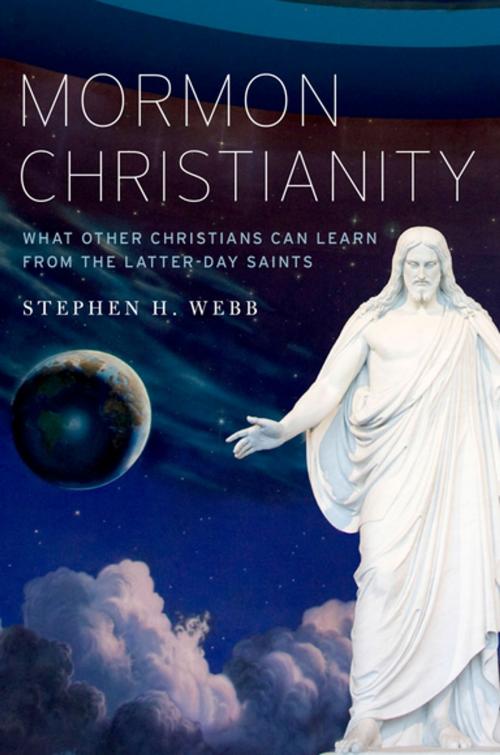Mormon Christianity: What Other Christians Can Learn From the Latter-day Saints
What Other Christians Can Learn From the Latter-day Saints
Nonfiction, Religion & Spirituality, Theology| Author: | Stephen H. Webb | ISBN: | 9780199316830 |
| Publisher: | Oxford University Press, USA | Publication: | August 8, 2013 |
| Imprint: | Oxford University Press | Language: | English |
| Author: | Stephen H. Webb |
| ISBN: | 9780199316830 |
| Publisher: | Oxford University Press, USA |
| Publication: | August 8, 2013 |
| Imprint: | Oxford University Press |
| Language: | English |
Mormons are adamant that they are Christian, and eloquent writers within their own faith have tried to make this case, but no theologian outside the LDS church has ever tried to demonstrate just how Christian they are. Stephen H. Webb's Mormon Christianity: What Other Christians Can Learn from the Latter-day Saints fills this void, as the author writes neither as a critic nor a defender of Mormonism but as a sympathetic observer who is deeply committed to engaging with Mormon ideas. Webb is unique in taking Mormon theology seriously by showing how it provides plausible and in some instances even persuasive alternatives to many traditional Christian doctrines. His book can serve as an introduction to Mormonism, but it goes far beyond that: Webb explains how Mormonism is a branch of the Christian family tree that extends well beyond what most Christians have ever imagined. His account of their creative appropriation of the Christian tradition is meant to inspire more traditional Christians to reconsider the shape of many basic Christian beliefs. Mormon Christianity is not all affirming and celebratory. It ends with a call to Mormons to be more focused on Christian essentials and an invitation to other Christians to be more imaginative in considering Mormon alternatives to traditional doctrines.
Mormons are adamant that they are Christian, and eloquent writers within their own faith have tried to make this case, but no theologian outside the LDS church has ever tried to demonstrate just how Christian they are. Stephen H. Webb's Mormon Christianity: What Other Christians Can Learn from the Latter-day Saints fills this void, as the author writes neither as a critic nor a defender of Mormonism but as a sympathetic observer who is deeply committed to engaging with Mormon ideas. Webb is unique in taking Mormon theology seriously by showing how it provides plausible and in some instances even persuasive alternatives to many traditional Christian doctrines. His book can serve as an introduction to Mormonism, but it goes far beyond that: Webb explains how Mormonism is a branch of the Christian family tree that extends well beyond what most Christians have ever imagined. His account of their creative appropriation of the Christian tradition is meant to inspire more traditional Christians to reconsider the shape of many basic Christian beliefs. Mormon Christianity is not all affirming and celebratory. It ends with a call to Mormons to be more focused on Christian essentials and an invitation to other Christians to be more imaginative in considering Mormon alternatives to traditional doctrines.















